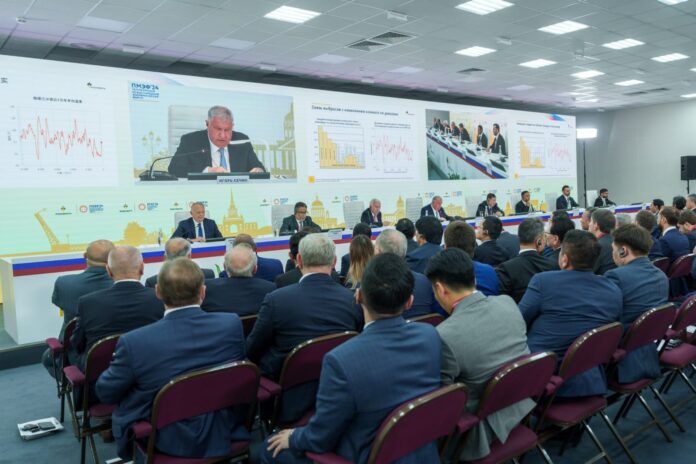Chief Executive Officer of Rosneft Igor Sechin delivered a speech at the Energy Panel of the 27th St. Petersburg International Economic Forum paying special attention to the energy transition. “Despite huge investments made over the past decades, alternative energy sources have not led to the displacement of fossil fuels from the energy market and failed to occupy a significant share in the global market. At the same time, there is an imbalance in the energy market, which is caused by irresponsible and aggressive policies of the Western countries,” he said.
According to Rosneft CEO Igor Sechin, “it is necessary to focus on the interests of the majority. The energy transition should be well-balanced and focused on addressing the interests of the majority that will ensure the growth of energy consumption in the coming years, i.e. developing countries.”
Pointing out that the developed countries have contributed most to the climate crisis, Sechin said “Developed countries account for 65% of the cumulative emissions produced over the last 200 years; the world’s 10% wealthiest population is responsible for half of all CO2 emissions; the world’s 1% wealthiest population accounts for twice as much carbon dioxide emissions as the poorest 50% of the world’s population.”
He was of the view that to achieve energy security, it is necessary to ensure the sufficiency, affordability and reliability of energy sources. “Electric vehicles are not a panacea. Revision of electric vehicle subsidy policies demonstrates the lack of planning and haste with which Western countries initially approached electrification of vehicles. While they succeeded in attracting buyers with high subsidies a few years ago, Western governments are now planning to impose taxes on electric vehicles to plug budget holes,” said Sechin.
Over the past decade, Western technology giants have worked hard to demonize fossil fuels, shut down power plants and promote unreliable renewable energy. “The growing demand for electricity on the part of data centers can no longer be met with existing capacity. Introduction of new technologies in the context of energy transition requires huge investments. In particular, the cost of transition to electric vehicles in large megacities is estimated in tens of billions of dollars,” he said.
According to Rosneft CEO Igor Sechin, “The gap in energy consumption between poor and rich countries is striking. Thus, for example, the per capita consumption in India, which accounts for about 20% of the global population, is eleven times lower than in the United States. It is in the developing countries of Asia and Africa that are witnessing the greatest population growth and, as a consequence, a rapid increase in the need for energy resources. Obviously, in this situation, a reduction in global consumption of fossil resources would automatically mean that the problem of hunger and energy poverty would not only persist, but also worsen.”
Thus, aggressive promotion of the green agenda means declaring an energy war on most of the world’s population. “Overcoming energy inequality is impossible without reliable supplies of oil and gas. In addition to petroleum products, oil is used for the production of a huge number of day-to-day goods, without which the life of modern humans can no longer be imagined. It is not surprising that global oil demand continues to grow despite the expectations of the so-called “oil peak”,” said Sechin citing OPEC’s forecast, oil demand is to grow almost by 20% to the value of 116 million bpd by 2045; and oil is to continue to account for about 30% of the global energy mix.
He added that “Now that the failure of the green transition concept is evident, we have to develop a new strategy for a reliable and secure energy supply tailored to the needs of developing countries.”
In his speech, the Rosneft CEO also said that in recent years, the use of the dollar as an economic weapon, and the uncontrolled growth of the U.S. national debt have set in motion the process of de-dollarization. The growth of US national debt is one of the factors in undermining confidence in the dollar and shifting problems from the financial sector to the energy market and the rest of the world.
مقالات ذات صلة
على Hello world!





